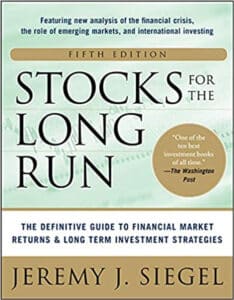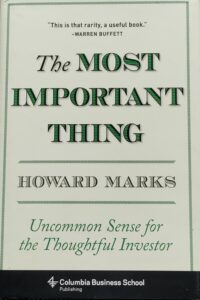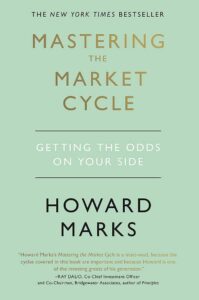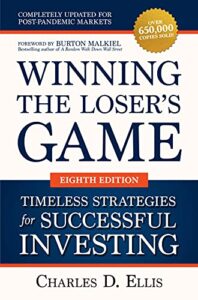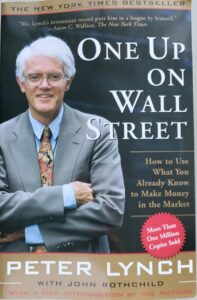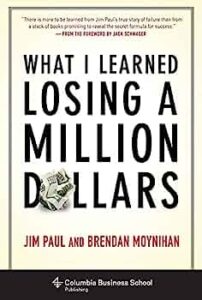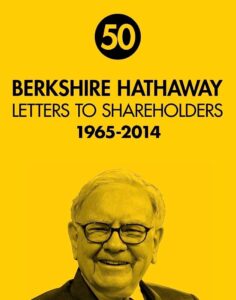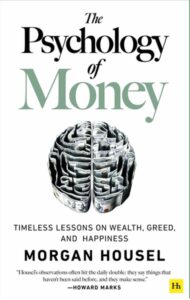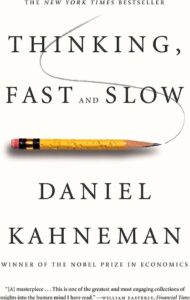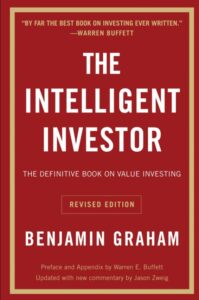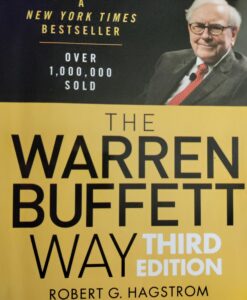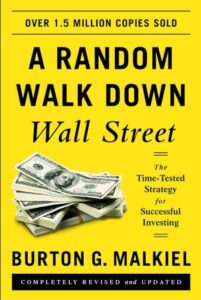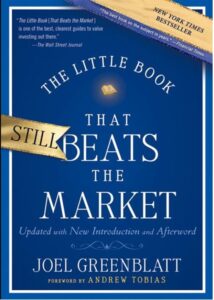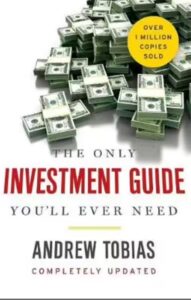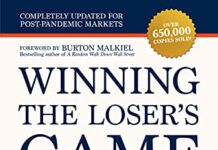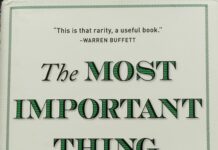Having read one or two investing books during the decade and a half, I can safely say that some books stand above all others.
Here I’ve gathered some of the greatest books for long-term investors that I guarantee will make you a successful investor.
Stocks for the Long Run by Jeremy J. Siegel
Written by one of the giants of the investing world, Jeremy J. Siegel, Stocks for the Long Run is one of the classics of long-term stock investing books.
Not only does it show why stocks are the superior long-term investment, it demonstrates how they’re less risky than bonds in the long run.
Siegel clearly demonstrates that if you wish to achieve superior results, long-term investing is the way to go.
The comprehensive guide to stock investing covers pretty much everything you need to know about the stock market and investing in general, which is why it’s a must-read for everyone who’s serious about succeeding as an investor.
The Most Important Thing by Howard Marks
“This is that rarity, a useful book.” -Warren Buffett
Written by Howard Marks of Oaktree Capital, The Most Important Thing is a collection of all the “most important things” about investing he has mentioned in his client memos over the years.
When it comes to timeless investing wisdom, Marks is, in my opinion, right up there with Warren Buffett.
The book covers topics such as second-level thinking, risk management, and, of course, tons of information about value investing.
It also offers you the best explanation of how the stock market works that I’ve ever heard.
In fact, after 15 years of investing, this book managed to change the way I look at investing and the stock market. Therefore, I can wholeheartedly recommend Marks’s book to anyone and everyone since it’s one of the best investing books out there.
If you’re interested, you can check out some of Marks’s main lessons in my summary of The Most Important Thing right away!
Mastering the Market Cycle by Howard Marks
Marks’s other book is right up there with The Most Important Thing.
Mastering the Market Cycle gives you a clear idea about what market cycles are, how they come to pass, and how you can benefit from understanding them.
The central theme of the book is that because you can’t predict where the market is going, it’s best to focus on where it is now. By understanding the current state of the market, you can act accordingly and achieve superior results as an investor.
It’s also an immensely useful book about how the stock market works.
I would recommend reading this right after you’ve read Marks’s other book, The Most Important Thing. That way you’ll get the most out of Marks’s investment philosophy.
Winning The Loser’s Game by Charles D. Ellis
Written by the founder of Greenwich Associates, Charles D. Ellis, Winning the Loser’s Game offers you two major lessons about investing.
The first one is that beating the market with an active investment strategy such as day trading, stock-picking, or market timing is extremely difficult. This is not because investors lack skills, it’s just the opposite.
Investors and fund managers are, in fact, so skillful that gaining an edge has become a lot more challenging than it was back in the day. Therefore, most active investors will not beat the market.
The second message is that because you can’t beat the market, you should join it. In other words, indexing is the way to go.
Ellis shows in his book that indexing is a simple way to do better than most investors by doing less.
So, if you’re wondering whether you should invest in individual stocks or invest passively in index funds, this is the book for you!
One Up on Wall Street by Peter Lynch
Written by the legendary fund manager, Peter Lynch, One Up on Wall Street is pretty much the opposite of Winning the Loser’s Game.
The book is all about picking the winning stocks and holding them for the long term. It goes through the basics of how to become an investor, how to approach different companies, and how to develop a long-term mindset.
The biggest factors of successful investing, according to Lynch, are knowing what you own, holding the winners for a long time, and basing your investment decision on business fundamentals.
Also, as Lynch points out on many occasions, it’s entirely possible for individual investors to beat professionals.
In fact, when compared to professionals, an individual investor has a myriad of benefits that make it possible to beat the market and the professionals.
I also have a summary of One Up on Wall Street that will get you started right away!
What I Learned Losing a Million Dollars by Jim Paul and Brendan Moynihan
What I Learned Losing a Million Dollars tells the story of Jim Paul, a trader who lost a lot of money and learned even more during the process.
While basically all other investing books out there tell you how to become successful and gain money, very few tell what it’s like to lose it all.
The book covers Jim’s life story and the lessons learned along the way. It’s an immensely entertaining story, but its core message is serious. It’s about behavioural psychology, decision-making, and the psychology of losing.
What I Learned Losing a Million Dollars helps you to recognize and avoid the most common pitfalls in investing as well as trading.
Berkshire Hathaway Letters to Shareholders
If there is one investor in the world who needs no introduction, it’s Warren Buffett from Omaha (and from Berkshire Hathaway).
His collection of annual letters to Berkshire Hathaway shareholders is a must-read for all investors.
Buffett’s letters are full of priceless information and timeless lessons about topics like selecting investments, valuing businesses, and investor behaviour. In some ways, it’s like having your own financial advisor on hand who happens to be the best in the world.
What sets Buffett’s comments apart from other CEOs is that they’re brutally honest and have no corporate jargon that repels most sane human beings.
While you can purchase these letters in traditional book form, they are also available for free on Berkshire’s website.
The Psychology of Money by Morgan Housel
The Psychology of Money teaches you that becoming financially successful is not about how smart you are, it’s about how you behave.
The book is written by Morgan Housel, a former columnist for The Motley Fool and The Wall Street Journal, who nowadays operates as a partner at The Collaborative Fund.
It’s, in my opinion, one of the most useful and insightful books about money ever written. Especially for a long-term investor.
The book reminds us that the most important thing in investing and creating wealth overall is time. Time not only helps your small investments grow exponentially but it can also correct a lot of mistakes like bad timing.
Also, Housel shows that becoming wealthy and staying wealthy are different skills. To accumulate considerable amounts of wealth requires quite a bit of risk, but maintaining that wealth requires the opposite.
This absolute gem of a finance book is a definite must-read for everyone who is serious about not only building wealth but also maintaining it.
Thinking Fast and Slow by Daniel Kahneman
Written by Nobel Prize winner Daniel Kahneman, Thinking Fast and Slow summarizes a lifetime of study about human behaviour.
Long-term stock investing is mostly a psychological feat, and knowing how your mind works increases your chances of success immensely.
In his book, Kahneman shows that we’re not nearly as rational as we like to think we are, and how our intuitive thinking may lead us astray.
Kahneman’s masterpiece is a slow read and it does demand quite a bit of focus but is well worth it in the end!
A must-read for everyone who wants to overcome their biases, especially for those who think they have none.
The Intelligent Investor by Benjamin Graham
“The best book on investing ever written” -Warren Buffett
When it comes to the best books for long-term investors, this one really needs no introduction.
Written by Buffett’s mentor, Benjamin Graham, The Intelligent Investor covers all the most famous ideas in investing.
These include concepts such as the margin of safety, Mr. Market, the difference between investing and speculating, picking undervalued stocks, and so on.
Although the book was originally published in 1949, its principles are still relevant. Maybe more than ever.
The Intelligent Investor is still the best how-to book for value investors out there.
The Warren Buffett Way by Robert G. Hagstrom
The Warren Buffett Way is, not surprisingly, all about long-term investing.
Not only is this one of the best books written about Buffett’s life and his investment philosophy, but it’s also an immensely useful book for stock-pickers overall.
The book includes (among other things) case studies of Buffett’s companies as well as his tenets for choosing the right company.
The Warren Buffett Way is filled with outstandingly useful information and can be recommended to all investors out there.
For a quick start, you can see my summary of the most important investing rules by Warren Buffett, that is based on this book.
A Random Walk Down Wall Street by Burton Malkiel
A Random Walk Down Wall Street is the best overall book on investing and the stock market that has ever been written.
The main lessons in Malkiel’s book are that it’s difficult to beat the market, most of us will fail during the process, and the simpler way is to invest in low-cost index funds through dollar cost averaging.
This way you beat most professional and amateur investors with little effort. As Malkiel shows, becoming a successful investor can be extremely easy.
A Random Walk Down Wall Street covers the most common concepts in the investment world like diversifying, the relationship between risk and reward, the efficiency of the stock market, and many others. It also offers you examples of how to build an investment portfolio out of index funds without any complicated investment vehicles.
Malkiel’s book is by far one of the best investment books for long-term investors as well as new investors of all time.
It’s the kind of book that when you read it, you can invest for the rest of your life without reading any other book about investing and achieve great long-term results.
The Little Book That Still Beats the Market by Joel Greenblatt
What would you expect of a book written by a wildly successful hedge fund manager with a value investing approach, who brings forth an investing strategy that’s based on a guaranteed magic formula??
Either a hell of a lot or very little. Personally, I was on the latter side.
But, as I learned when I actually read the book, it’s one of the smartest books ever written on investing.
It’s one of the few books that not only manages to simply explain the idea behind stock picking and value investing but does it in less than 190 pages.
The book is most famous for its magic formula that can be used to achieve higher returns.
Now, while the magic formula seems to actually work, the real value of the book is not the formula but the rational, long-term approach to investing it teaches.
The Only Investment Guide You’ll Ever Need by Andrew Tobias
The Only Investment Guide You’ll Ever Need is one of the most well-known money management and personal finance books out there.
It covers everything from actually saving your money and making a financial plan to different investment strategies and the most common concepts in investing. In other words, it teaches you how to achieve a secure financial future.
What’s worth mentioning is that unlike the other investing books mentioned here, this one also offers advice on financial planning, which makes it a great first book for novice investors.
Overall, the book is about taking responsibility for your personal finances, and how investing works. It will go as far as offering advice on how to teach your own children to invest.
The book is mostly directed to people living in the US, so if you live somewhere else, you should obviously remember that the tax and retirement-related advice won’t probably apply directly to your situation.
That being said, it’s safe to say this book will help you achieve your financial goals wherever you’re from.


